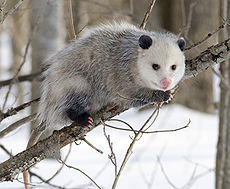Injury
| Injury | |
|---|---|
| Classification and external resources | |
 A minor abrasion injury. |
|
| MeSH | D014947 |
Injury (also bodily injury or bodily harm) is damage or harm caused to the structure or function of the body caused by an outside agent or force, which may be physical or chemical, and is either unintentional (For e.g. accidents at work, sports injury) or intentional (For e.g. suicide, homicide). A severe and life-threatening injury is referred to as a physical trauma.
Contents |
Types

- Bruises are hemorrhages under the skin caused by contusion.
- Wounds are cuts and grazes are injuries to or through the skin, that cause bleeding (i.e., a laceration).
- Burns are injuries caused by excess heat, chemical exposure, or sometimes cold (frostbite).
- Fractures are injuries to bones.
- Joint dislocations are displacements of a bone from its normal joint.
- Concussions are mildly traumatic brain injuries caused by a blow, without any penetration into the skull or brain.
- Sprains are muscle injuries which occur to ligaments, and are caused by a sudden over-stretching.
- Shock is a medical condition in which the tissues cannot obtain sufficient oxygen and nutrients.
- Amputations are injuries which result in the removal of a bodily appendage by trauma or surgery.
- Serious bodily injurys are injuries to the body that introduce a substantial risk of death to the victim.
Common causes
There is no large scale statistics on the incidence of minor injuries. However, for physical traumas or injuries leading to hospital discharge, common causes are traffic accidents and falls.
Injury Prevention and Recovery
The best method of injury prevention is avoiding activities that are physically rigorous. If avoidance is not an option, stretch before and after physical activity. Stretching frequently helps maintain flexibility. Muscle soreness is an indication that your body is improving its strength — but pinching and tightness could be an indication of injury.
Legal issues
Various legal remedies may be available for personal injury (eg. under the law negligence) or for injury to the reputation of another (eg. see damages and restitution) for slander or libel. In the United States, the legal definition of malicious injury is any injury committed with malice, hatred or one committed spitefully or wantonly. Such an action must be willfully committed with the knowledge that it is liable to cause injury. Injury involving element of fraud, violence, wantonness, willfulness, or criminality.
In the Criminal Code of Canada, bodily injury is referred to as "bodily harm".[2]
Feigning injury
Injuries may be feigned by a person or animal for various causes.
People
Faking or exaggerating an injury is a form of malingering and may allow a person to receive compensation, injury cover, or may result in a team being awarded a penalty in a game of football.
Animals

The phrase "playing possum" is derived from the behaviour of the opossum, a mammal which will mimic the appearance and smell of a sick or dead animal when threatened. Birds such as the killdeer are known to feign injury to lead a predator away from their nest. The predator gives chase, believing them to be easy prey, but the bird then flies away, hopefully having distracted the predator sufficiently to prevent it from finding its nest.
See also
- Assault
- Bodily harm
- Battery
- Negligence
- Personal injury
- Tort
References
External links
|
|||||||||||||||||||||||||||||||||||||||||||||||
|
||||||||||||||||||||||||||||||||||||||||||||||||
|
||||||||||||||||||||||||||||